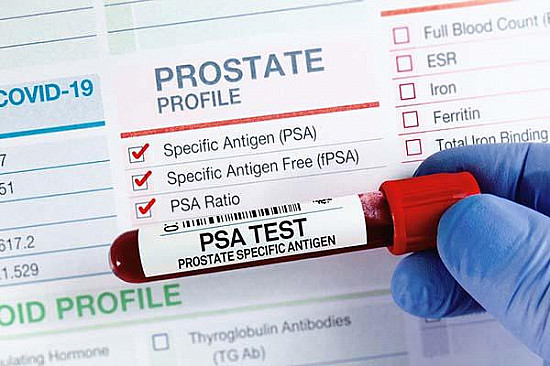Low vitamin D tied to aggressive prostate cancer
By Charlie Schmidt
As a nutrient, vitamin D is surely essential—without it, we couldn’t absorb the calcium and phosphorus we need for healthy bones. But research increasingly points to other benefits from vitamin D. One of these is possible protection against cancer. Scientists are finding that vitamin D can slow the growth of abnormal cells. It might also starve tumors by making it difficult for them to sprout new blood vessels.
New findings suggest that prostate tumors in particular can become highly aggressive when a man’s vitamin D levels are too low. A report in the journal Clinical Cancer Research showed that the lower the vitamin D level, the more aggressive the prostate cancer.
“This study adds to the growing body of sound information that vitamin D may be important to several areas of health, cancer being one of them,” says prostate cancer expert Dr. Marc Garnick, the Gorman Brothers Professor of Medicine at Harvard-affiliated Beth Israel Deaconess Medical Center and editor in chief of Harvard’s Annual Report on Prostate Diseases. “In my practice, vitamin D, and if necessary, supplemental calcium in appropriate doses is generally a sound recommendation to consider.”
During the study, investigators measured blood levels of vitamin D in nearly 700 men who had first prostate biopsies at one of several Chicago-area urology clinics. Half the men were of European descent, while the other half were of African American descent.
Low vitamin D levels were associated with high-grade, more advanced tumors in both groups. In addition, among African American men low vitamin D was also linked to a higher risk of developing prostate cancer. That wasn’t true among European American men, for whom low vitamin D was linked only to more aggressive tumors.
A few foods contain vitamin D, especially some types of fatty fish, eggs, some types of mushroom, and foods fortified with the vitamin, like milk and other dairy foods. Another way to get vitamin D is to make it yourself by getting some sunlight.
Men with dark skin absorb less ultraviolet light from the sun than men of a lighter complexion, and so tend to make less vitamin D. This could explain why they’re also at greater risk of prostate cancer, the investigators speculated. Indeed, prostate cancer is more common among African American men, and their death rates from the disease are also higher.
The new study has some shortcomings, including that a one-time vitamin D measure may not reflect a chronic deficiency of the vitamin. But the findings add to mounting evidence that vitamin D helps protect against prostate cancer, and that a healthy lifestyle that includes safe sun exposure is a good way to lower the chance of developing it.
National guidelines recommend a daily vitamin D intake of 600 international units for men up to age 70, and 800 international units thereafter.
About the Author
Disclaimer:
As a service to our readers, Harvard Health Publishing provides access to our library of archived content. Please note the date of last review or update on all articles.
No content on this site, regardless of date, should ever be used as a substitute for direct medical advice from your doctor or other qualified clinician.
















